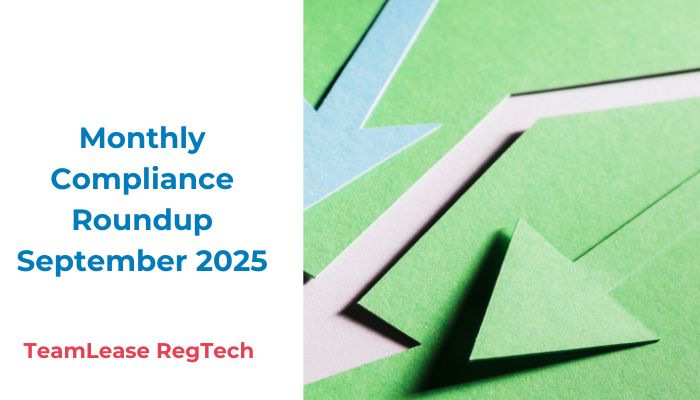India first overtook the UK at the start of the decade to become the fifth-largest economy in the world, followed by surpassing China in 2023 to become the most populous country in the world. Whether it’s Digital Public Infrastructure, vaccine manufacturing, promoting ease of doing business or creating a domestic manufacturing industry, we have firmly set ourselves on the path of becoming a developed nation within the coming decades. A huge part of this is our demographic dividend opportunity window, wherein 59% of our population will be working age by 2041. This period is what has been dubbed as the ‘Amrit Kaal’ wherein more and more people will join the workforce and fuel unprecedented economic growth.
However, as more and more people join the workforce, it will be up to the employers to ensure that these individuals understand the importance and need for good compliance behaviour. A total of 1,536 acts and rules, 69,233 compliances, and 6,618 filings govern the business ecosystem in India. While the sheer number of compliances contributes to the regulatory complexity, the added ingredient of criminality raises the cost of poor and non-compliance to new heights. Of the 26,134 compliance requirements that carry imprisonment as a penalty for contraventions, 17,819 (68%%) belong to labour laws. In addition, corporations must keep track of regulatory updates published on over 2,000 government and regulatory websites. While some major companies have found a way to keep track of applicable compliances through digital solutions, a majority are still dependent on manual, people-dependent, and paper-based processes.
Consequently, a huge chunk of the economy is still informal. Today, there are 63+ million MSMEs employing over 110 million people. Of these, micro businesses make up 99% of the sector and are responsible for 97% of the people employed. However, only 1 out of every 60 enterprises is formal. This is a result of the complex web of laws and compliances, with a majority of enterprises without any resources to tackle it. Navigating the world of regulatory compliance that is divided into different categories (labour, secretarial, EHS, commercial, industry-specific, finance & taxation, general), types (licenses & registrations, registers & records, audits, and examinations to name a few), and levels (central, state, and municipal) can quickly become next to impossible for an MSME. For an MSME to truly take the next step and become a large enterprise, it needs an internal framework that can keep up with its compliance obligations.
When a micro, small, and medium-sized enterprise (MSME) expands and joins the formal sector, it has to comply with over 400 annual compliances right away. Now, let’s look at a manufacturing-related MSME. 50 display requirements, such as registration certificates, act summaries, standing orders, social security regulations, safety signs, labels for hazardous materials, and equipment identification marks, must be complied with by a unit. Furthermore, the employer is required to keep at least forty different formatted registers. The enterprise must maintain and renew approximately thirty licences, registrations, and permissions from various agencies and government departments. These include municipal corporation electricity, water, and sewerage connections, vehicle registrations, trade licences, environment clearances, factory licences, and EPF and ESI registrations. Only businesses that have moved beyond paper-based, manual, ad-hoc compliance processes are able to stay on top of such large volume of filings and obligations.
The sheer complexity then begs the question, how can employers and corporations keep up with their regulatory obligations on the right side of the law? With ever-expanding businesses that will hire more and more people as the size of the workforce increases, there is an impending challenge. All these new hires are going to be unaware and unsensitised of the importance of good compliance behaviour.
It will be up to the organisation to instil such behaviour. To do so, they need to create a culture of compliance within the company that incentivises good compliance behaviour while penalising rogue employees. There needs to be internal training, an organisation-wide internal framework and encoded IT systems that flag risky behaviours. In addition, employers must embrace technology and oversee the digital transformation of all their business processes, not just compliance management. A digital compliance management program will aid the senior management in creating a culture of compliance by means of accountability, transparency, and timeliness. It will also improve their control and visibility over the compliance functions and status of pending, ongoing, and upcoming compliances.
We are now in the third decade of the 21st century. India is quickly its place among the leaders of the world by leveraging digital technology and its skilled workforce. The government and regulators are working towards creating a business-conducive environment that promotes ease of doing business. As such, it is now the responsibility of the employers to wholeheartedly incorporate and adapt digital technologies that create efficiency, transparency, and accountability.
You might also be interested to read: Monthly Compliance Roundup for December 2023






